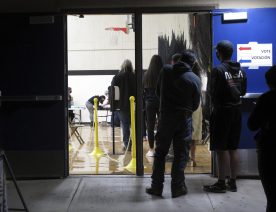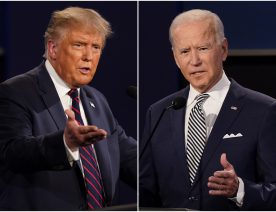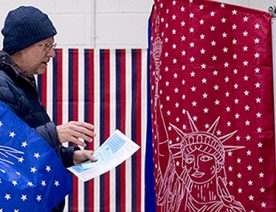
March 11, 2022
Many Americans think significant progress has already been made in attaining equal voting rights for African Americans; most Black Americans disagree. However, there is agreement that more work needs to be done to achieve equal treatment at the polling booth for Black Americans and there is support from both white and Black Americans for new policies to make it easier to vote.
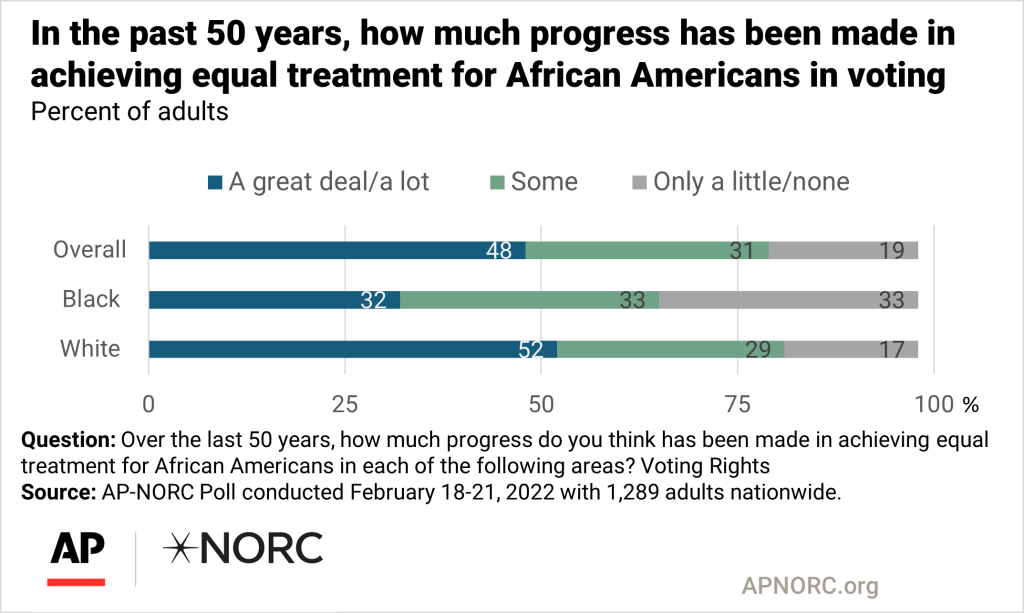
While most of the public thinks more work needs to be done to bring about equality at the ballot box, Black Americans are far more likely to think a lot more must be done to reach equality than white Americans. Forty-two percent of white Americans believe that equal treatment in voting has already been attained, compared with just 12% of Black Americans.
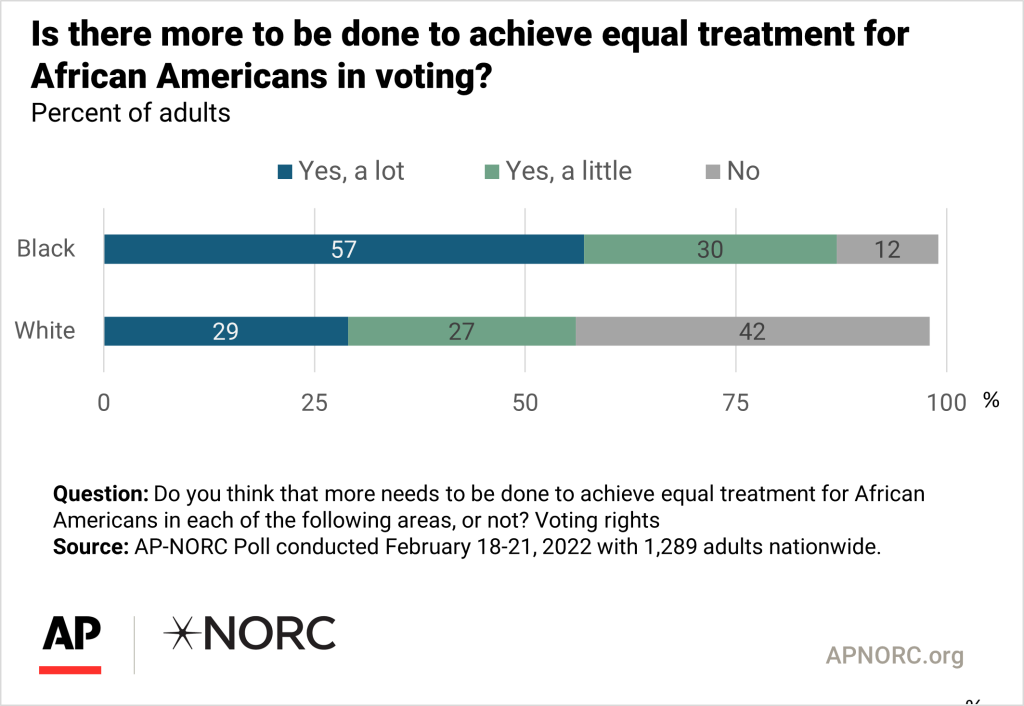
Most Black (61%) and Hispanic (56%) Americans consider voter suppression a major problem. Just 41% of white Americans agree that barring eligible voters from the ballot box is a major problem. Seventy-four percent of the public think voting is neither too easy nor too difficult, although Black Americans are more likely to say voting in their state is too difficult. Twenty-three percent of Black Americans say voting in their state is too difficult, compared with 15% of Hispanic Americans and 11% of white Americans.
When it comes to changes to voting regulations, most Americans, regardless of party, favor requiring photo identification to vote. There is also support for automatically registering adult citizens to vote when they get a drivers license or other state identification, the so-called ‘motor voter’ laws, and for allowing citizens to register and vote on the same day at their polling place. Nearly half of the public favors allowing people to vote by mail without requiring them to give a reason.
Republicans are more likely than Democrats to approve of photo ID requirements, while Democrats are more likely to approve of registering citizens automatically when they get their drivers licenses, same-day voter registration, and no-excuse absentee voting. Americans with a college degree are more likely than adults with less education to support motor voter policies (67% to 52%), same-day voter registration (61% to 44%), and no-excuse absentee voting (63% to 41%).
Black Americans are in favor of motor voter policies (57% to 58%) and same-day voter registration (47% to 48%) at similar rates to white Americans, though they are more likely to support no-excuse absentee voting (55% to 46%). White Americans are more likely to support photo ID requirements for voting, 71% to 57%.
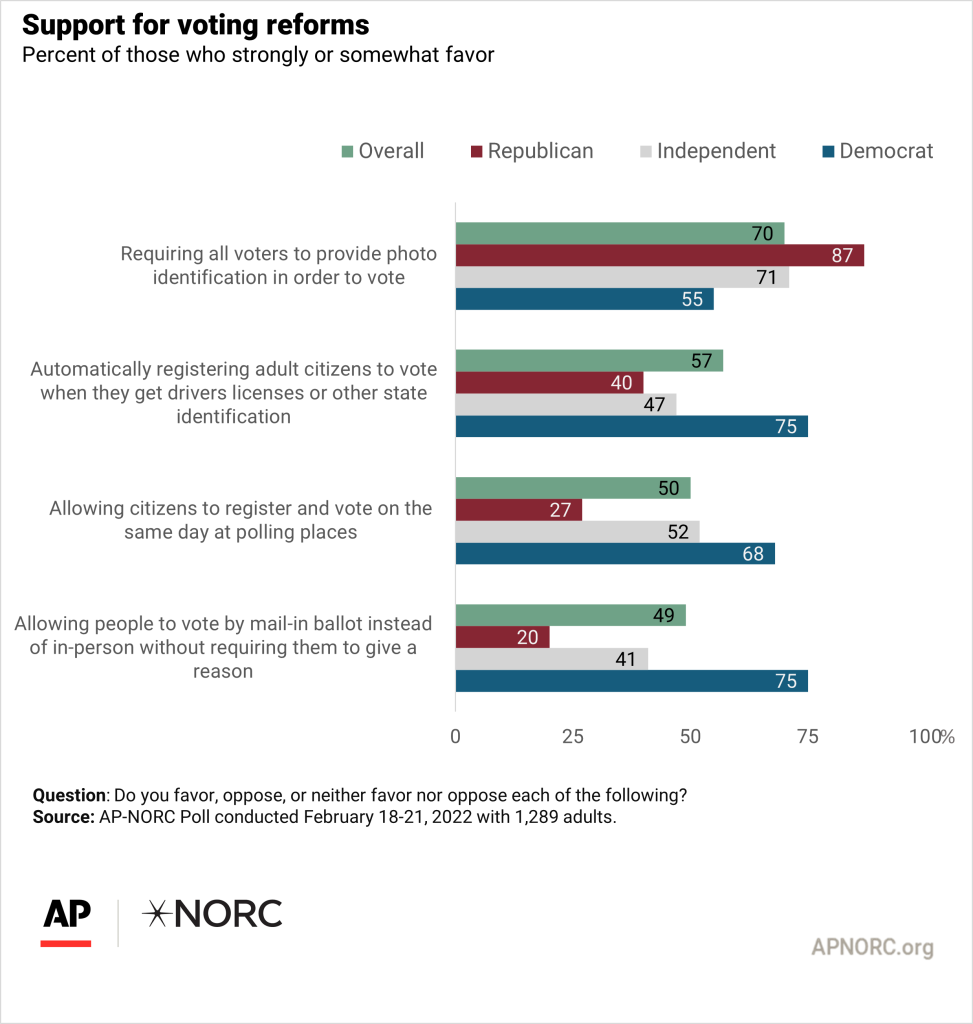
Many Americans think there are major problems in American elections. More than two-thirds believe that states drawing legislative districts that intentionally favor one political party – gerrymandering – is a major problem. Roughly half of Americans think people who are eligible not being allowed to vote is a major problem, while 41% see a major problem in ineligible individuals casting ballots.
Democrats and Republicans have opposing views on the problems. Sixty percent of Democrats say that voter suppression is a major problem, while 66% of Republicans believe that people voting fraudulently is a major problem. Democrats are more likely than independents or Republicans to view gerrymandering as a major problem.
White Americans are just as likely to see voter suppression and voter fraud as major problems in the United States. Black Americans view voter suppression as a bigger problem than voter fraud.
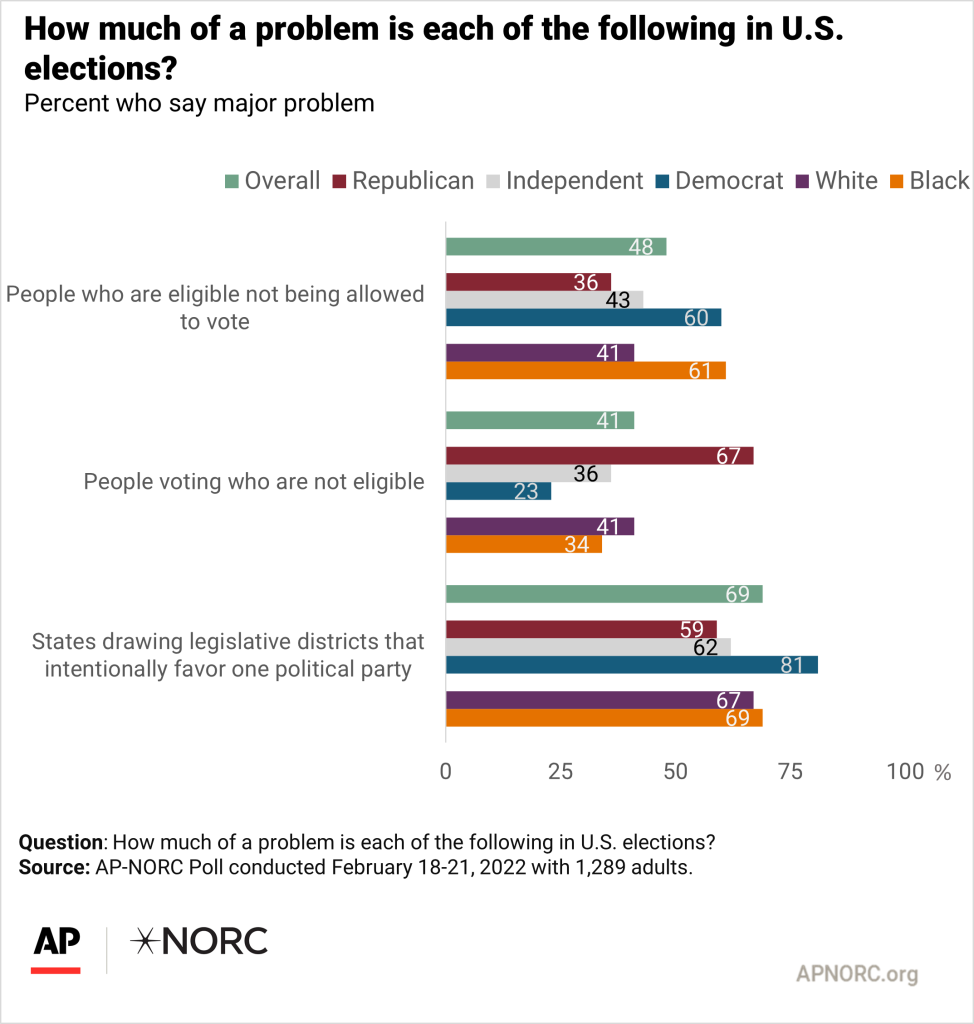
When it comes to the 2022 midterm elections, Democrats are more likely than Republicans or independents to have confidence in the accuracy of the vote tally. While roughly half of both white and Black Americans say they have a great deal or quite a bit of confidence that the votes in the 2022 midterms will be counted accurately, white Americans are more likely to say that they have little or no confidence in an accurate count.
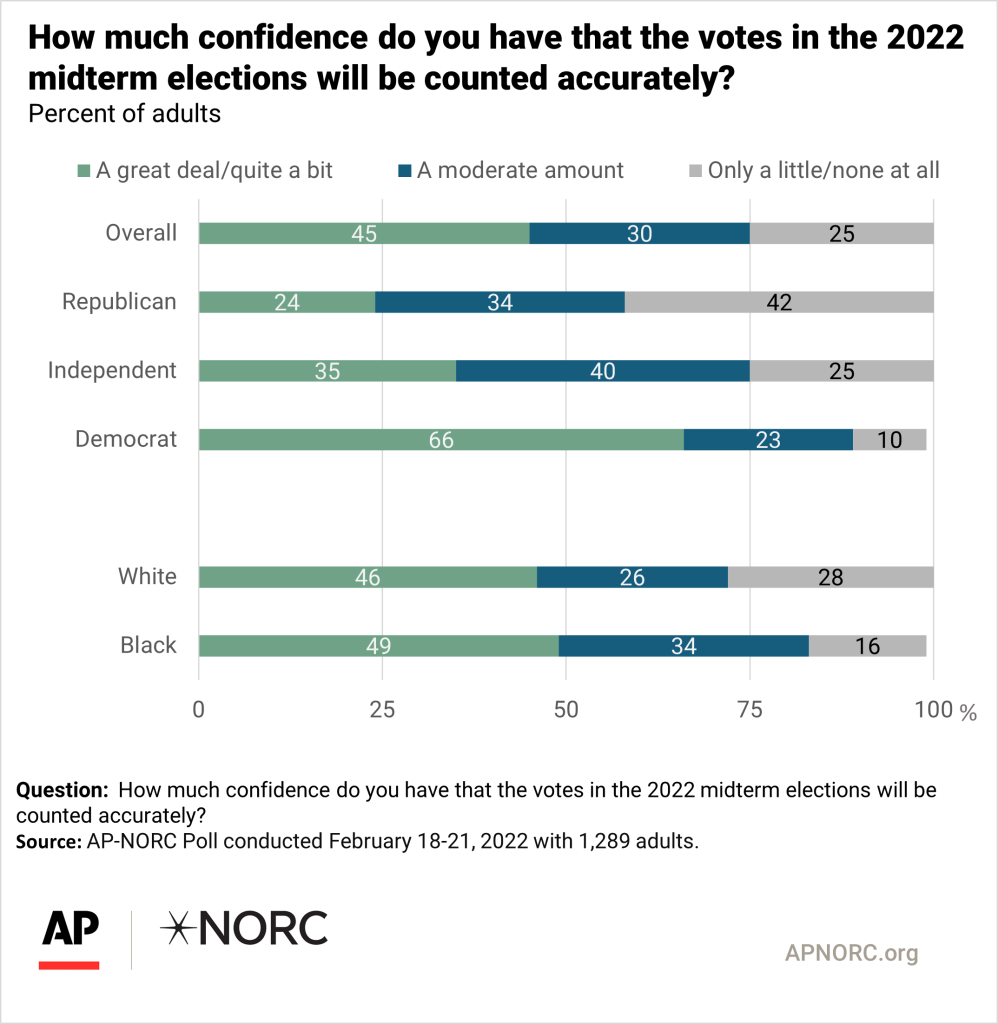
Many Americans are frustrated or worried about the state of democracy in the United States these days, while few are proud or hopeful. White Americans are more likely than Black Americans to say they feel the negative emotions, and they also are more likely to say they don’t feel the positive emotions. More than half of Americans with college degrees feel frustrated or worried about the state of democracy in the United States compared with about 4 in 10 of those without a degree.
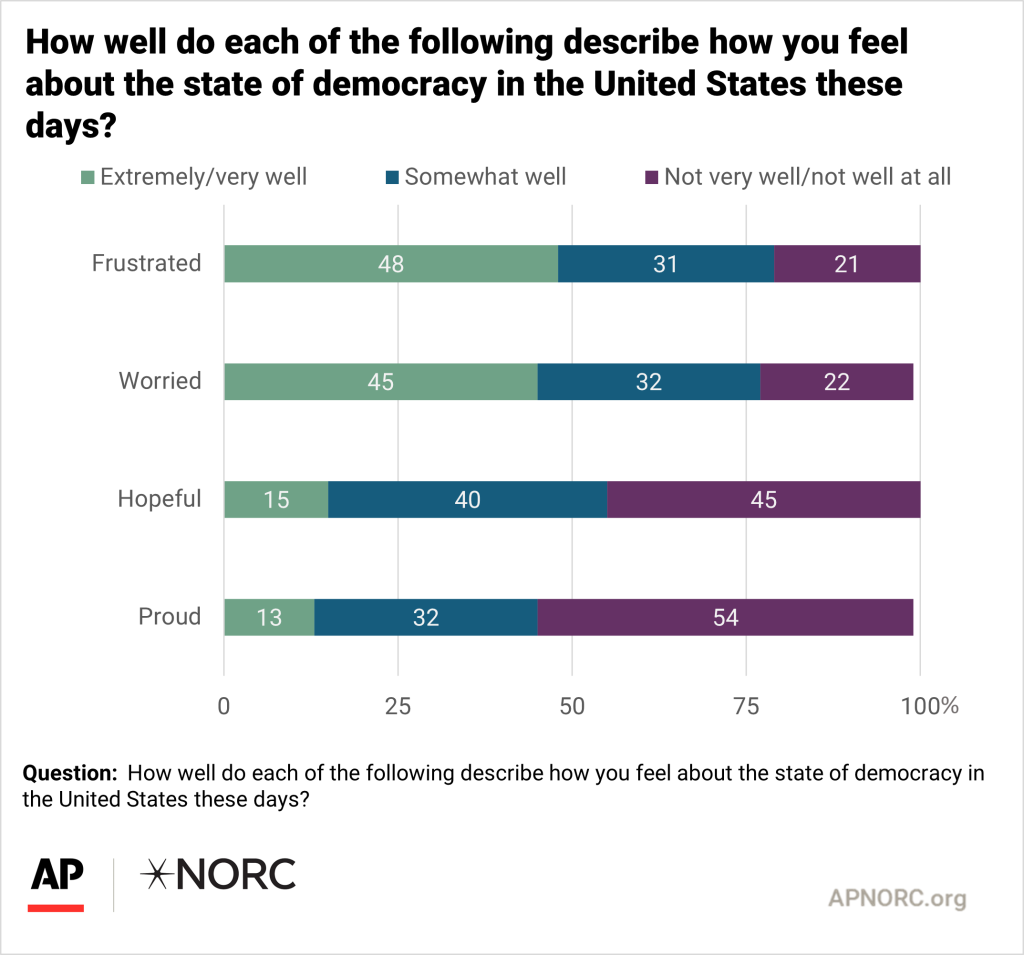
The nationwide poll was conducted February 18-21, 2022 using the AmeriSpeak® Panel, the probability-based panel of NORC at the University of Chicago. Online and telephone interviews using landlines and cell phones were conducted with 1,289 adults. The margin of sampling error is +/- 3.7 percentage points.
Black respondents were sampled at a higher rate than their proportion of the population for reasons of analysis. The overall margin of sampling error for the 301 completed interviews with Black adults is +/- 7.2 percentage points.
- Suggested Citation: AP-NORC Center for Public Affairs Research. (February 2022).“Voting rights in the United States” [https://apnorc.org/projects/voting-rights-in-the-united-states/]





